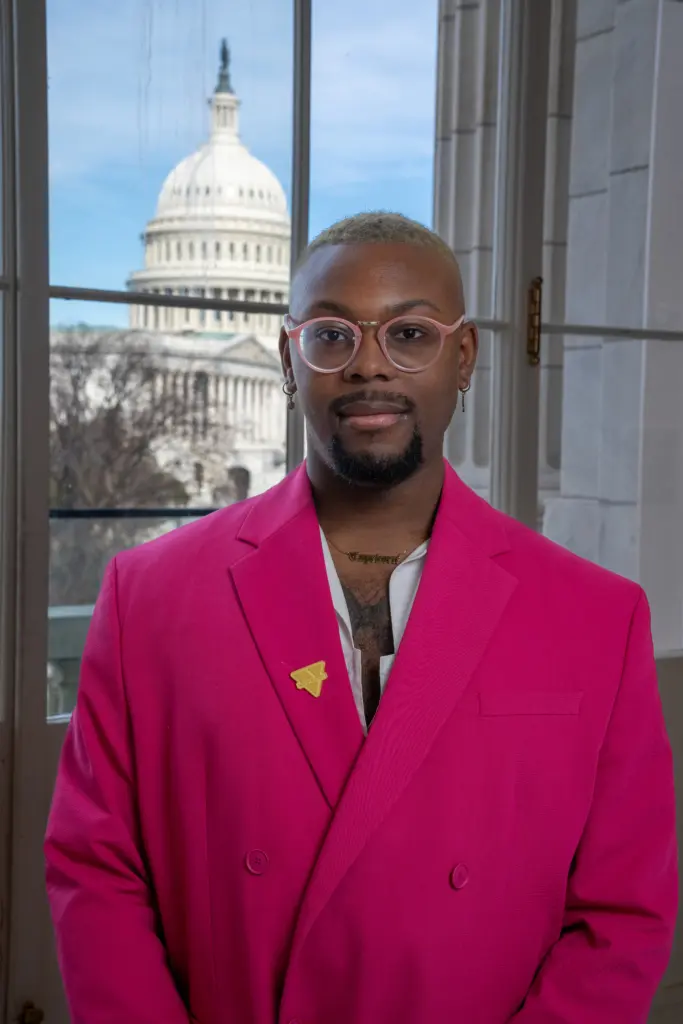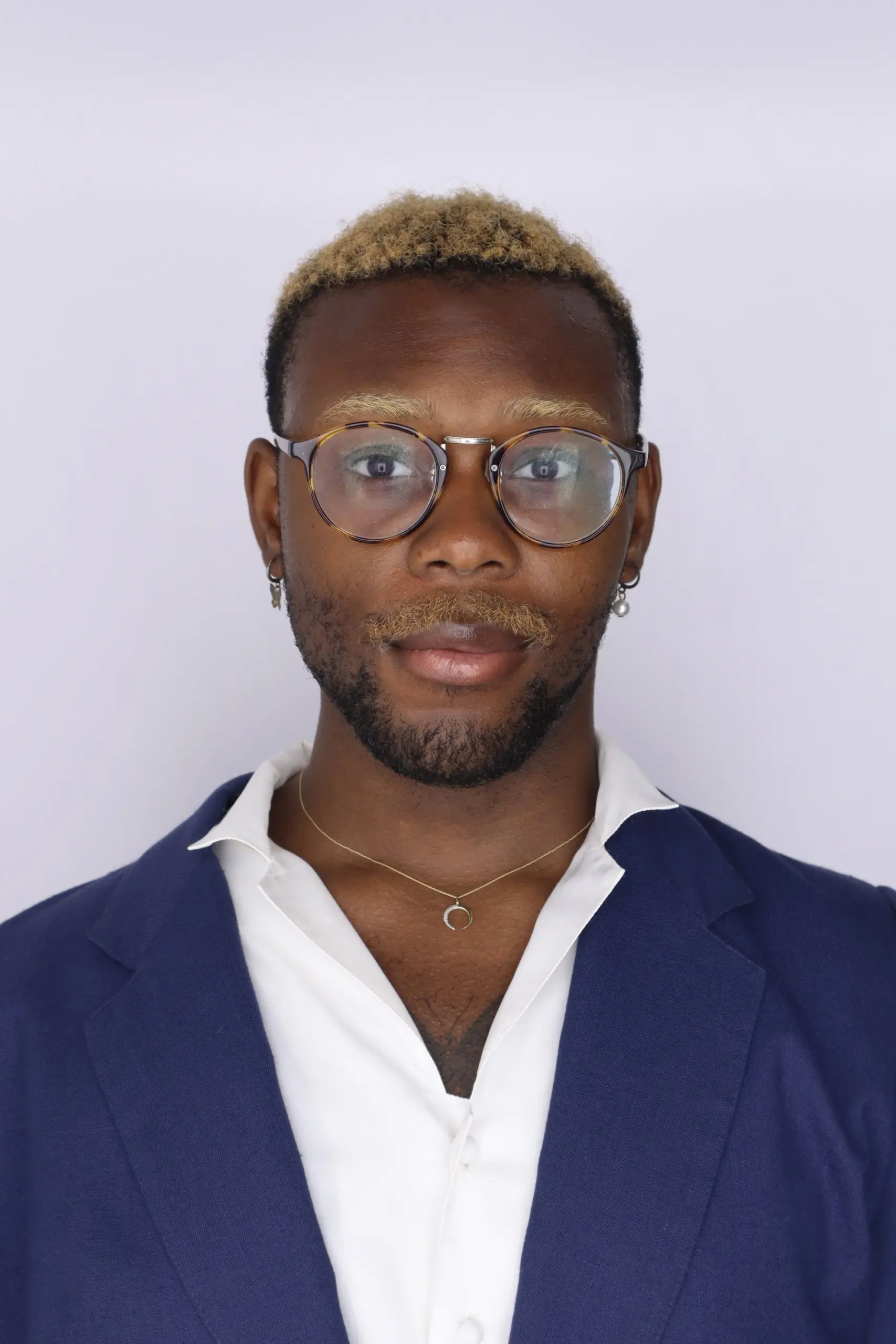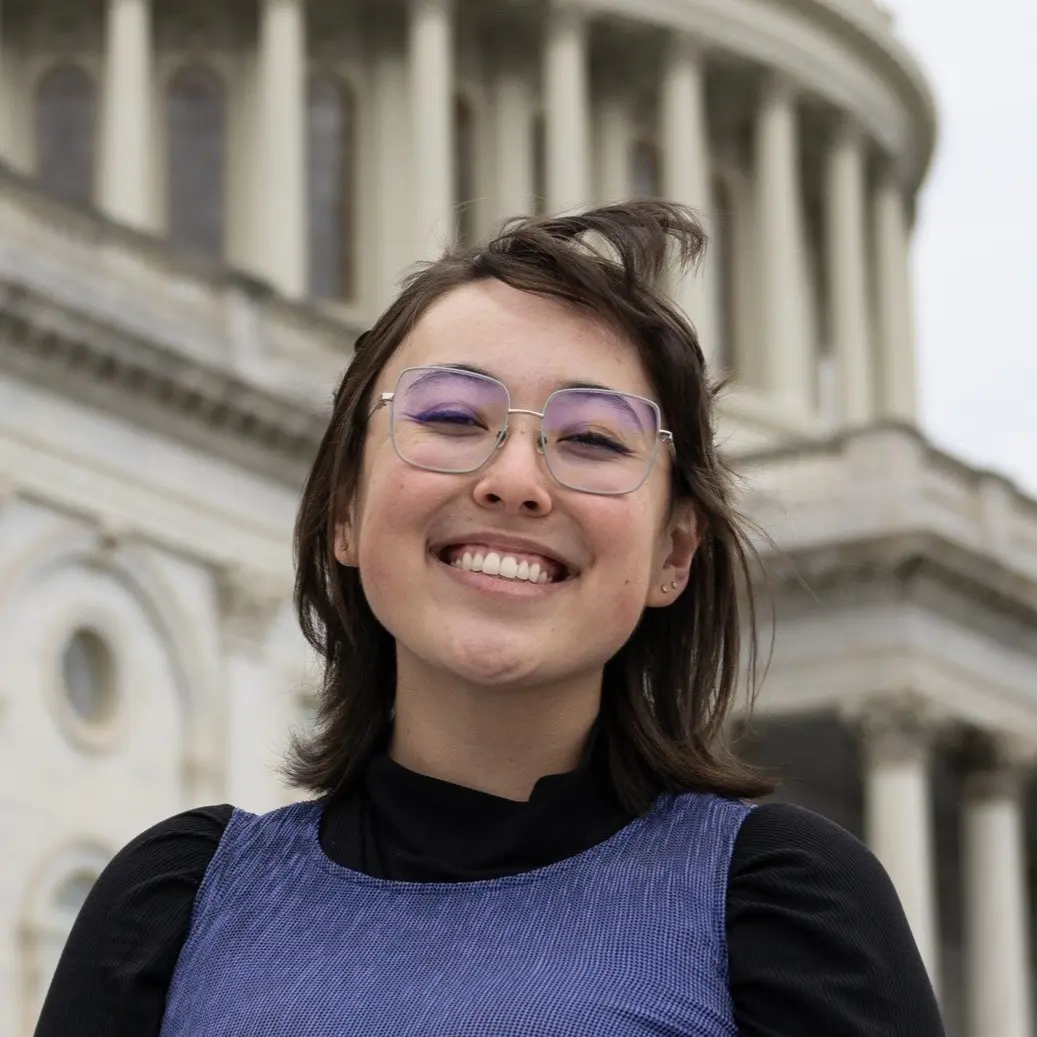
OUT ON THE HILL is the official blog of the Victory Congressional Interns. Views expressed do not necessarily reflect those of LGBTQ+ Victory Institute. Learn more about the internship at victoryinstitute.org/vci.
———————————–
The interlocking chains of systemic oppression
weave the fabric of racist narratives underlying the American dream.
Here lies a system of inequality, with justice denied to many,
while some argue for assimilation over self-worth.
Yet, they overlook the reality that people of color must labor tenfold
to gain recognition from the predominantly white, straight male power structure.
Change must come to this system of marginalization.
Politicians who claim to advocate for change often fail
to heed the calls for help from marginalized groups.
The Black body is objectified yet criminalized,
highlighting the stark contradiction within our society.
Diversity extends beyond the classroom; it demands representation in positions of power.
Institutions preaching diversity often stand idly by
as Black individuals on campus face harassment from law enforcement.
Here lies the injustice in America,
accompanied by the scant actions taken to address it.
My internship experience on Capitol Hill has heightened my awareness
of what it means to be racially Black in America.
Reflecting on my African roots, I grapple with a sense of disconnection.
I contemplate the essence of Black identity in contemporary America
and confront the racial dynamics that shape our society.
Growing up as the sole Black student in my classroom,
I faced ostracization due to the color of my skin.
Manipulation, division, and oppression persist,
hindering genuine connections within our society.
James Baldwin once said, “The paradox of education is… to create… the ability to look at the world for himself.”
Education empowers individuals to critically examine society
and work towards meaningful change.
We hold onto the hope that we, the youth, are the agents of change,
the bearers of a brighter future.
As I delved into academia, I questioned the absence of Black studies
and the overlooking of historical atrocities like Japanese internment camps.
In a neoliberal academic landscape, resources accumulate
at the expense of marginalized communities.
Elite institutions grapple with the paradox of needing BIPOC individuals
while struggling to embrace the challenges they bring.
The Undercommons, as articulated by Fred Moten and Stefano Harney,
advocates for a fugitive tradition of radical Black intellectualism,
pushing back against institutional constraints.
We, as subversive intellectuals, challenge the status quo.
We navigate spaces that may not feel welcoming,
knowing that true intellectual growth often occurs underground,
in the undercommons of enlightenment.

